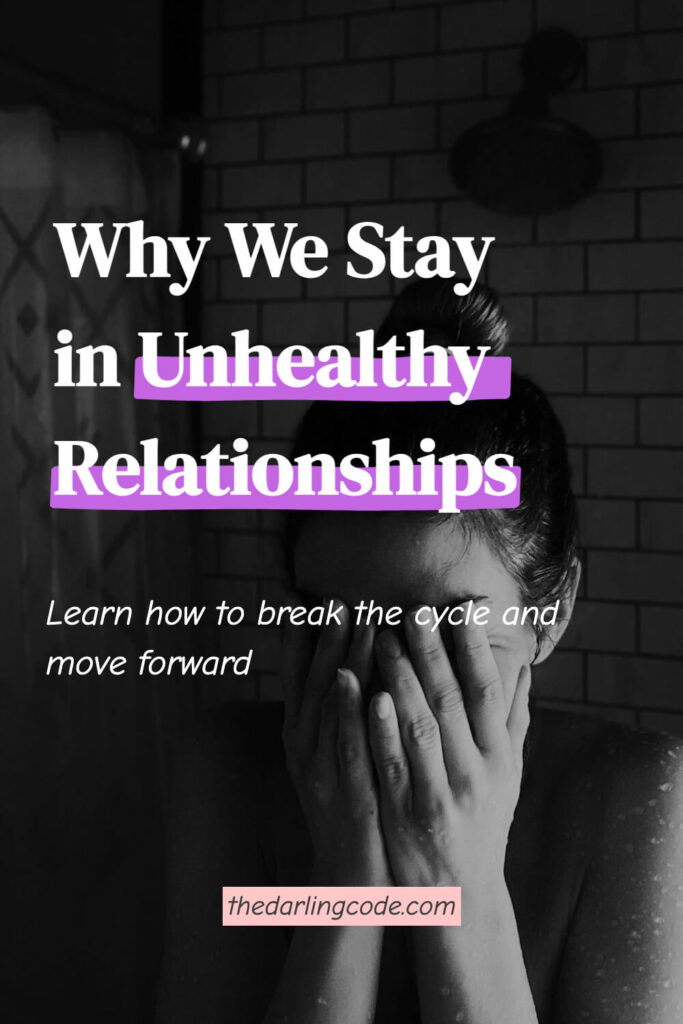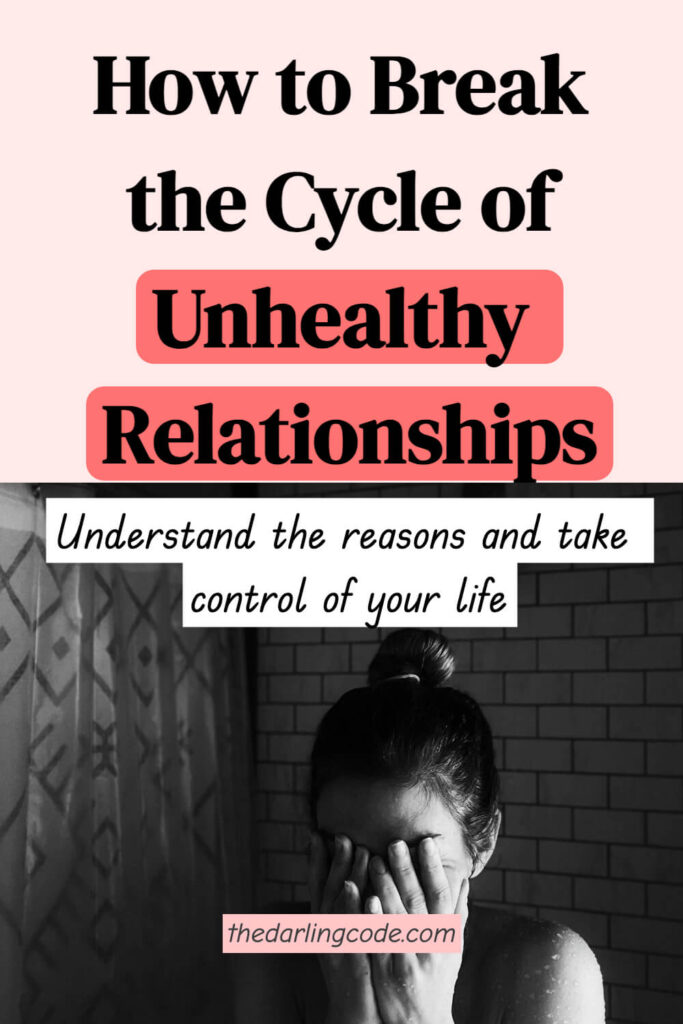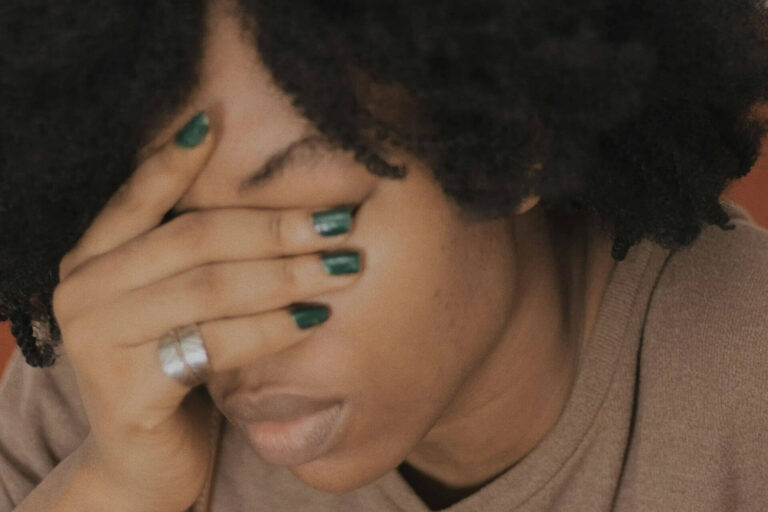Why We Stay in Unhealthy Relationships—and How to Break the Cycle
The experiences shared in this article are based on real emotional journeys, but all personal details are anonymized and used with the explicit written permission of the clients. Any resemblance to actual persons, living or dead, is purely coincidental. We are committed to treating all client stories with the utmost confidentiality and respect.
The Text Message That Changed Everything
Last month, a woman named Clara sat across from me in my office, clutching her phone like it might shatter.
She’d been replaying a message from her partner: “I know I messed up again, but you’re the only one who gets me. I’ll do better—promise.”
“I’ve heard this a hundred times,” she said, tears welling. “But part of me still thinks… what if this time’s different?”
Clara’s not alone.
As a Relationship Coach, I’ve heard versions of this story from CEOs, artists, stay-at-home parents, and college students.
Staying in unhealthy relationships isn’t about weakness—it’s about being human.
Our brains and hearts conspire in ways that keep us stuck, even when logic screams “Leave!”
Let’s explore why we hold on—and how to gently uncurl your fingers when you’re ready.
Save this article for later—Pin it to Pinterest and come back when you need it! 📌

1. “But It’s Not All Bad” – The Hope Trap
The pattern:
- He brings you soup when you’re sick… but mocks your career goals.
- She apologizes tearfully after fights… then repeats the same hurtful behavior.
We stay because intermittent reinforcement tricks our brains.
Think of a slot machine: The occasional “win” (a kind gesture, a romantic date) keeps us feeding the machine, hoping for another jackpot.
Story snapshot: A client’s boyfriend would disappear for days, then return with concert tickets or handwritten letters.
“When it’s good, it’s magic,” she said.
But “magic” shouldn’t come with emotional whiplash.
Your reframe: Healthy love isn’t a highlight reel—it’s a steady, respectful daily rhythm.
2. The Devil You Know vs. The Fear You Don’t
Common inner monologues:
- “At least I’m not alone.”
- “What if I never find someone else?”
Our nervous systems often prefer familiar pain over unknown change.
I’ve worked with survivors of toxic friendships who said leaving felt like “quitting a cult”—terrifying, even when they knew it was right.
It takes more mental energy to choose something new than to stick with a routine. That’s biology, not failure.
Try this: Write two lists:
- What you’re truly afraid of losing (e.g., shared friends, financial stability)
- Concrete steps to address those fears (e.g., consulting a financial planner)
Fear shrinks when you give it a name—and a plan.
3. “I Can Fix Them” – The Savior Syndrome
The belief: If I love them enough, they’ll change.
We often confuse empathy with responsibility.
One client spent years “coaching” her avoidant partner through therapy workbooks… while neglecting her own anxiety. “I felt like his project manager,” she laughed bitterly.
Truth bomb: You can’t love someone into maturity.
Real change only happens when they choose it—consistently, without your prompting.
Gentle reminder: You’re a partner, not a rehab center.
4. Family Scripts: “This Is Just How Love Feels”
Cultural whispers:
- “Marriage is hard work!” (Yes—but not misery.)
- “My parents fought like this, and they stayed together 50 years!”
We inherit relationship blueprints.
A bisexual client once confessed she tolerated her girlfriend’s jealousy because “my dad always said lesbians are drama.” Ouch.
Break the cycle: Ask: “What did young me think love had to look like? Does that still serve me?” Rewriting family narratives takes courage—but it’s possible.
5. Sunk Cost Fallacy: “I’ve Invested Too Much to Quit”
The math of heartbreak:
5 years together + 2 shared pets + 1 joint mortgage = “I can’t walk away now.”
We overvalue what we’ve “lost” instead of valuing what we could gain.
A 45-year-old client stayed in a sexless marriage for a decade because “divorce felt like admitting I wasted my 30s.”
Perspective shift: Time invested ≠ justification to lose more time.
You’re not a failure for choosing your future self.
How to Start Breaking the Cycle
Step 1: Rewire Your “Normal” Meter
Ask yourself:
- Do I feel safe expressing needs?
- Does conflict lead to repair… or retaliation?
Action: Track interactions for a week. Note moments you felt:
- Respected
- Dismissed 🔴
- Confused
Patterns become obvious on paper.
Step 2: Build Your “Bridge” Support System
Leaving often feels impossible because we’re isolated. Start now:
- Reconnect with a friend you’ve drifted from
- Join a hobby group (yoga, pottery, hiking)
- Find a Relationship Coach specializing in relational trauma
Pro tip: If finances tie you to someone, discreetly consult a financial advisor. Knowledge = power.
Step 3: Practice Small Acts of “No”
Boundaries are muscles—they need training. Start low-stakes:
- “I can’t take your call tonight—I need to rest.”
- “I’d prefer we don’t discuss my weight.”
Each “no” that’s respected builds confidence. Each ignored “no” reveals who truly values you.
Step 4: Grieve the Fantasy
Letting go hurts because you’re mourning two losses:
- The person
- The dream of what could’ve been
Ritual idea: Write a letter to your “hopeful self” who believed in the relationship. Burn or bury it as closure.
Step 5: Redefine Love on Your Terms
Healthy love looks like:
- Accountability without shame
- Space without punishment
- Growth without criticism
Daily mantra: “I accept nothing less than peace.”
Final Words from The darling Code
Darling, if you’re reading this while wrestling with guilt or fear, let me hold your heart for a moment: Staying doesn’t make you foolish.
Leaving doesn’t make you cruel.
Your deepest self already knows what you need—it’s just waiting for you to trust it.
Progress isn’t linear.
You might unblock their number at 2 AM.
You might cry in the pasta aisle because they loved rigatoni.
That’s okay.
Healing isn’t about perfection; it’s about showing up for yourself daily, even in tiny ways.
Today, do one thing that honors your worth:
- Delete old texts that keep you hooked
- Text a friend: “Can I vent over coffee?”
- Write down 3 things you’d never tolerate in a friend’s relationship… then ask why you allow it in yours
Come back and tell me how it went. I’ll be here, cheering you on with my giant mug of Earl Grey.
You are worth the love that feels like coming home—to yourself.
With heart,
The Darling Code
PS. If this article touched something inside you, save it for a quiet moment—or share it with someone you love.
Healing spreads when we share it.
And if you’re journaling tonight, start with this: “What would choosing myself look like?”
I’m cheering for you.
Got value from this article? Pin it to Pinterest for easy reference and help others discover it! 🌟


ABOUT THE AUTHOR
Carsey, Founder, Editor-in-Chief & Relationship Coach
Carsey is the heart and mind behind this space. As a Relationship Coach and Editor-in-Chief, she blends practical advice with storytelling to help you navigate love, connection, and everything in between.






